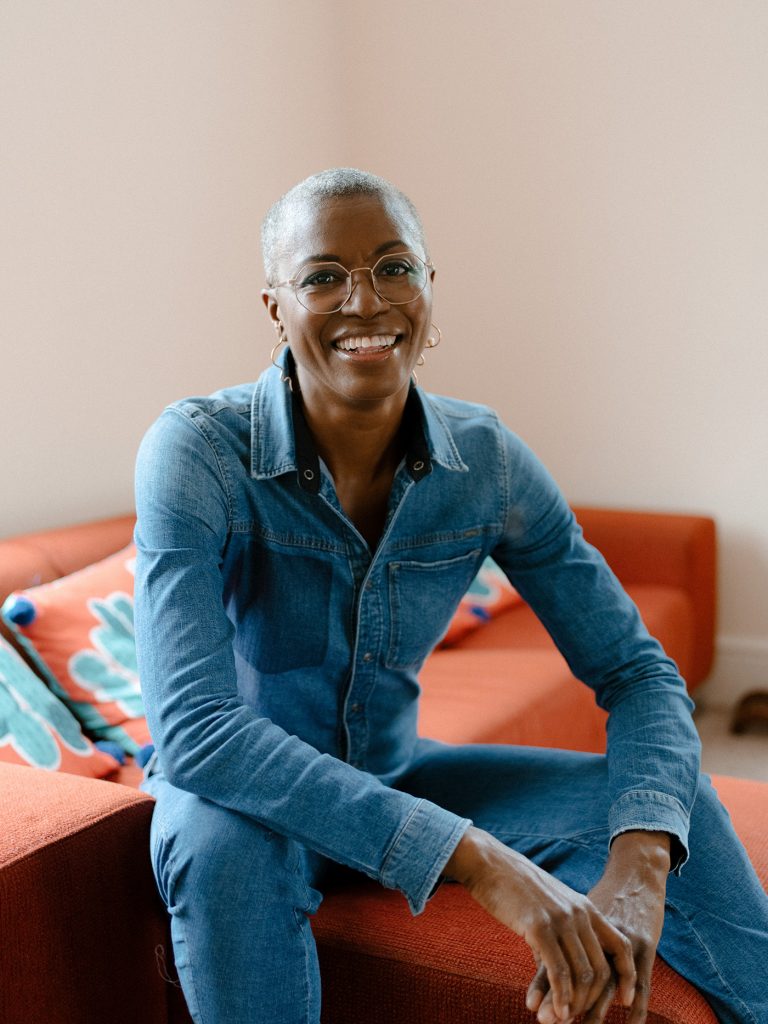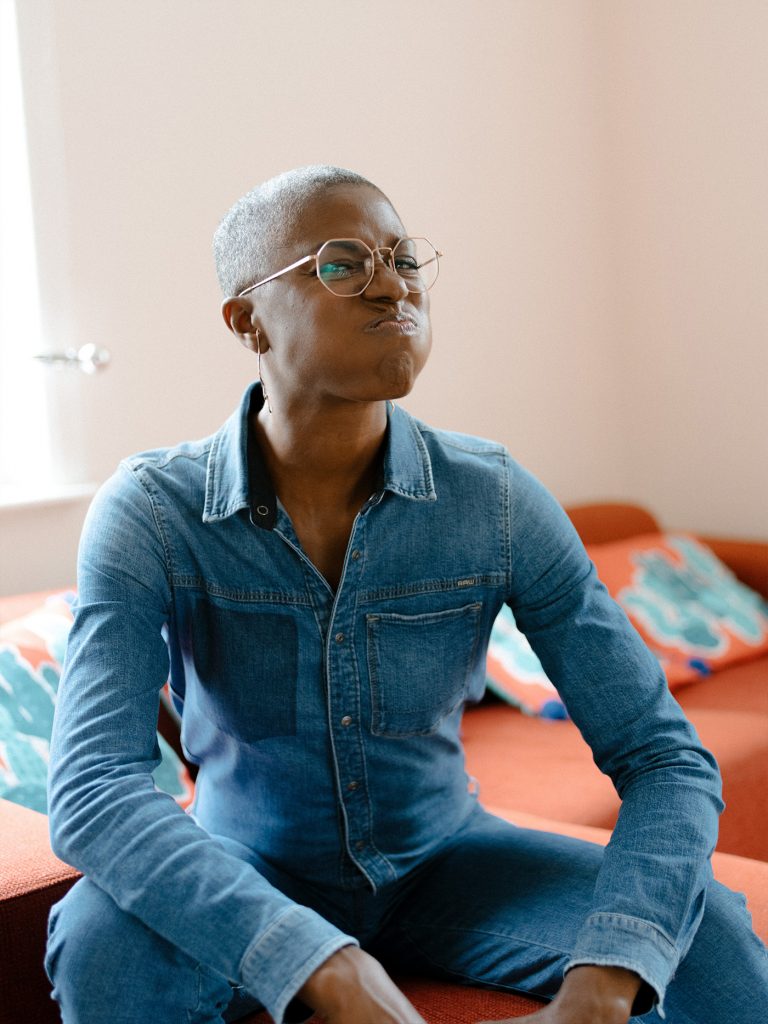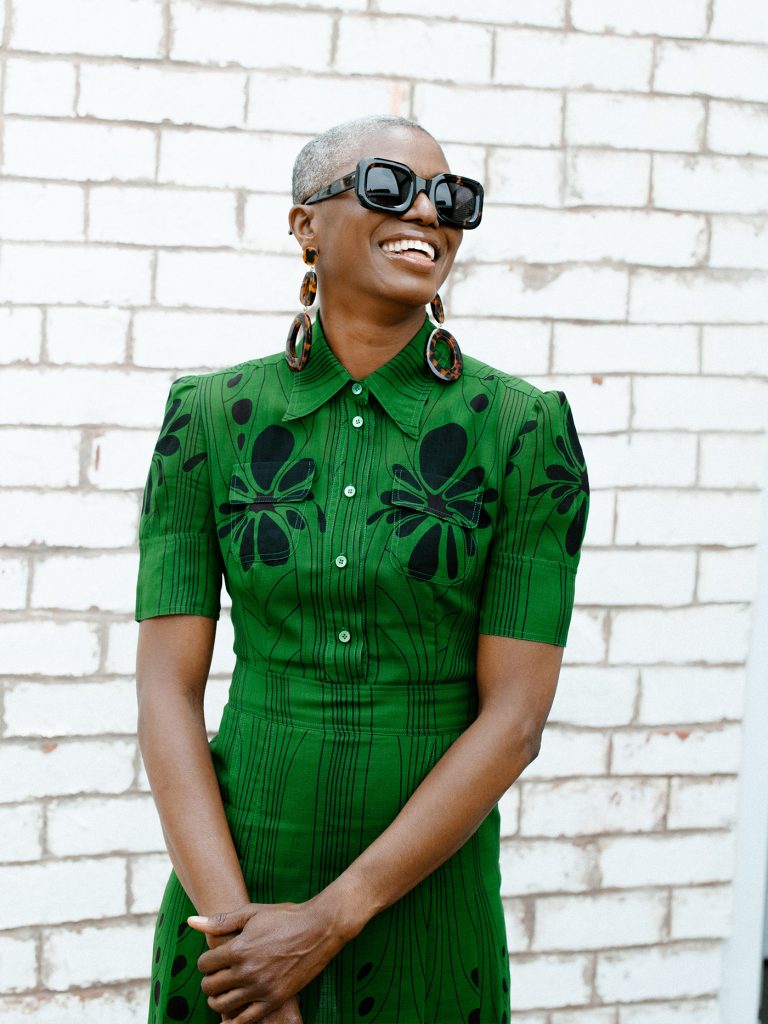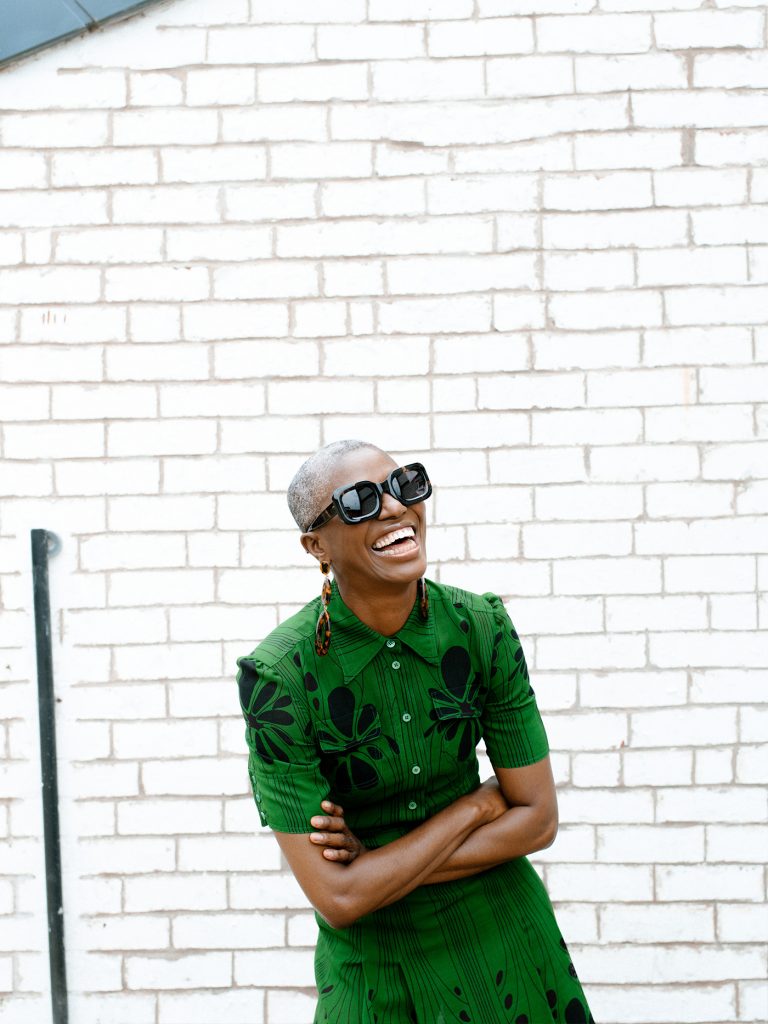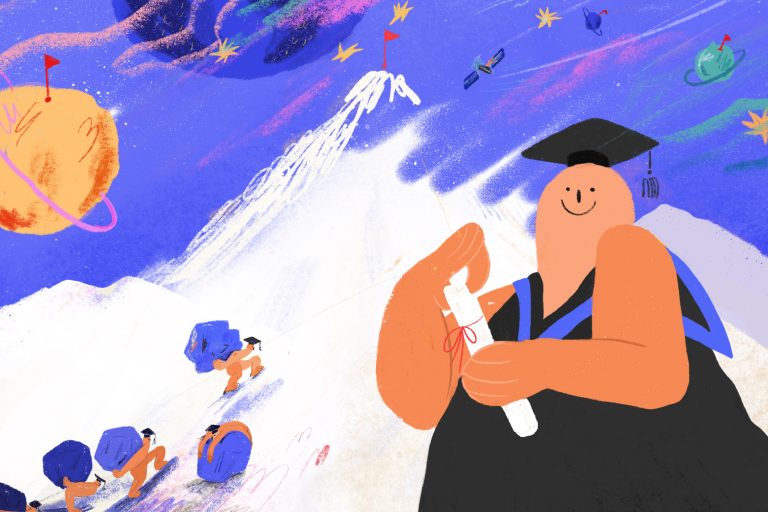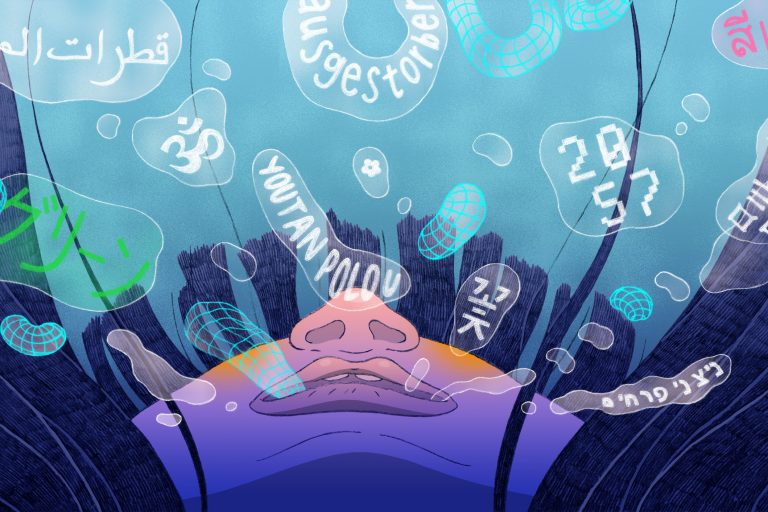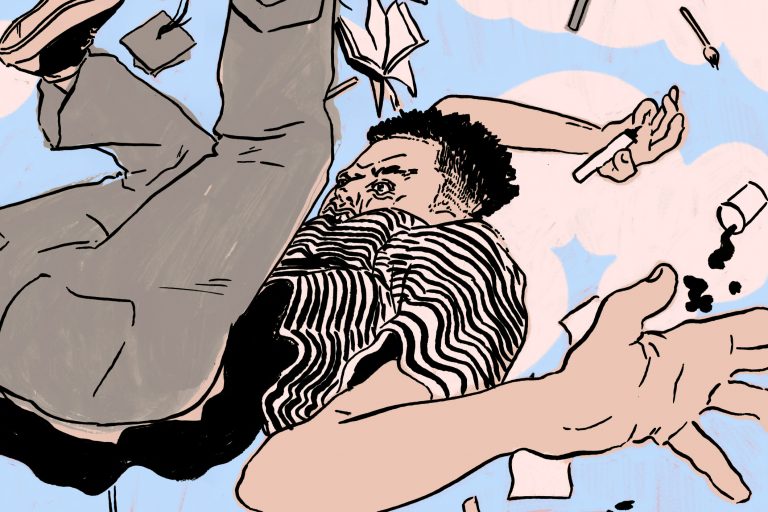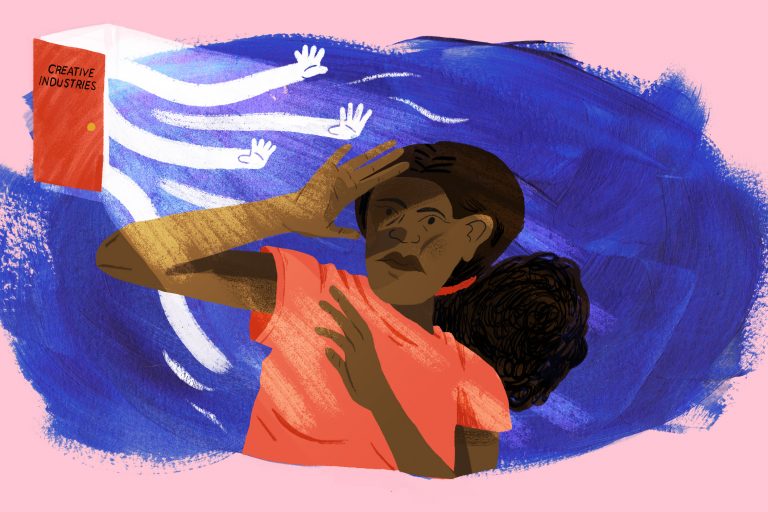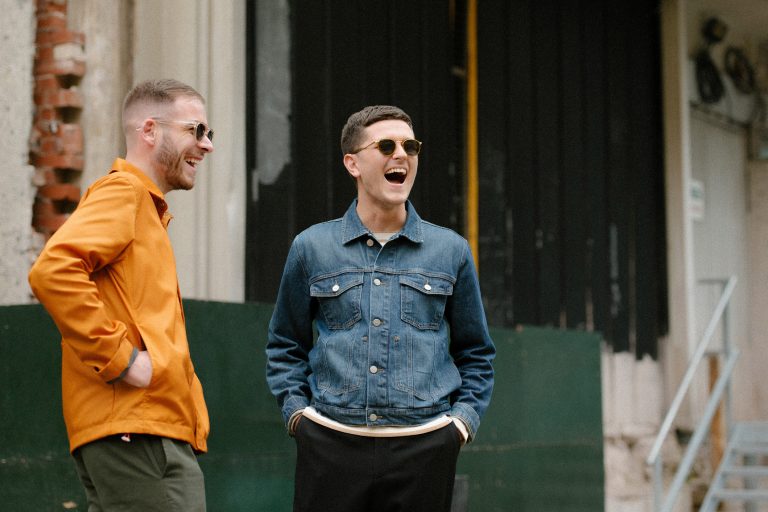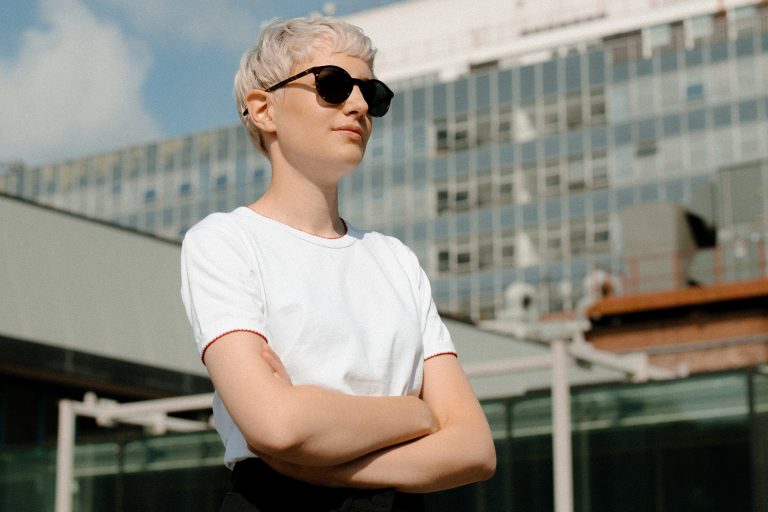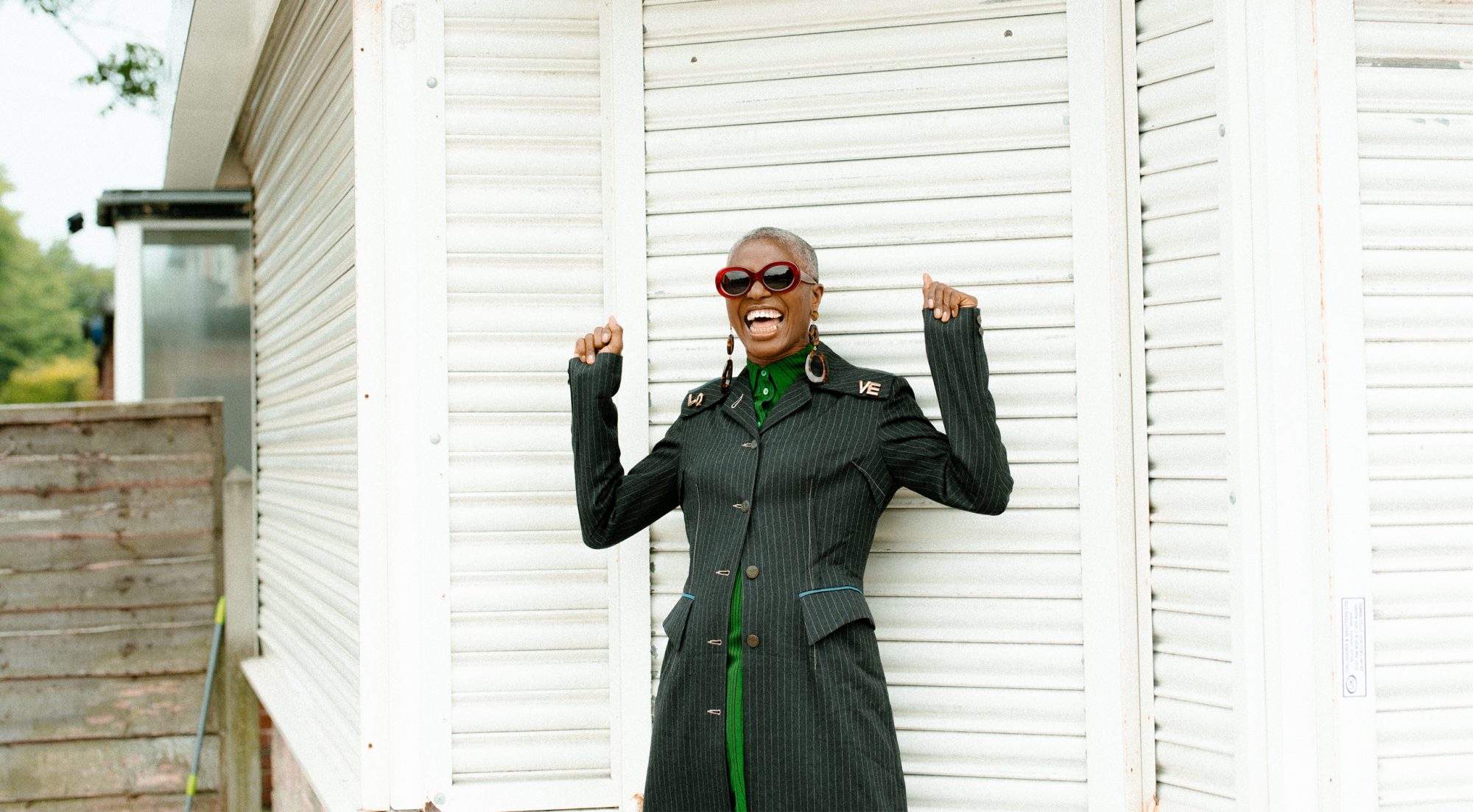
Homecoming
Laura Robertson meets Paulette Constable aka DJ Paulette to talk about coming up in Manchester and the Haçienda, facing the past and embracing the future
Words by Laura Robertson
Photography by Lauren Maccabee
“Gardening is very important.”
I’m in the garden of Paulette Constable, AKA jet-setting, international DJ Paulette, who made her Haçienda debut aged just 24 and was one of only two female residents there. She’s a trailblazer. This was not what I expected Paulette to be like, and I’m loving it. She’s pointing out ferns and roses and trees that she’s nurtured at the back of her terraced home in Whitefield, Manchester, discussing the ins and outs of pruning. What to save, what to lop off. It’s a metaphor for life, she says.
“It’s about cutting back, and also being ok with loss”, Paulette meditates. “Sometimes you can have a beautiful plant, and then there’ll be a tiny frost and it’s gone. It’s the cycle of life. Gardening teaches you how to nurture and to be philosophical about the process. You have to weed out the bad, and keep the good.”
I feel like I know Paulette and I’ve only been here for an hour. She’s a total charmer: tall, absolutely gorgeous, shaved head; sporting huge sunglasses, a green print summer dress and silver brogues. The first thing she does when we speak over email is ask me if I’m a Capricorn. When we meet in person, I get a kiss, a cuppa and a tin of biscuits to rummage through.
She’s so friendly and disarming that it’s difficult to reconcile Paulette the gardener and Paulette the celebrity. Her CV is awe-inspiring: this is the same woman whose band supported Gil Scott-Heron and Curtis Mayfield back when she did vocal work; who has conquered a BBC Radio 1 Essential Mix (still fresh), Ministry of Sound residencies and world tours; who has earned two Gold Discs for her work with Mercury Records. And we can’t forget her notorious sets — wearing metal bras and sequined knickers — at The Haçienda’s polysexual clubnight, Flesh.
And now, the DJ who “can play everything from disco, rare groove, soul, funk, old hip hop, to absolute tearing techno and house” is back home in Manchester. Since returning in 2015, Paulette’s been resident at Albert’s Schloss, Tariff & Dale, The Refuge and parties for Ministry of Sound. She’s gone down a storm at festivals, making her third appearance at Manchester Pride this year, and she has her own radio shows on Gaydio and Reform Radio (where she “cranks it for two hours”). She’s also become an educator and lecturer, teaching music business and radio broadcasting at the University of Westminster, the University of Salford and Access To Music.
“I’ve travelled probably about two thirds of the world,” Paulette tells me, “and I am one of the most fervent, flag waving and politically-charged Mancs that you could ever hope to meet.”

She shows me a new vase she’s bought with bees on — the city’s symbol — which she pretends to have made from scratch, laughing. Next to it is a framed portrait taken in The Refuge by photographer Elspeth Mary Moore, as featured in a recent exhibition, Suffragette City: Portraits of Women in Manchester Music. Paulette’s posing like a rock star in silver boots, next to records (read: belters) that sum up her journey in music: Adeva’s ‘Respect’ (1989) and Candi Staton’s ‘You Got The Love’ (1986).
She tells me that she found her tribe when she returned to the city.
“Manchester for me is the blood in my veins. It’s my family. It’s my roots. And it always, always will be. It’s impossible to take that out of me. It’s who I am.”
But after being away for so long (she left in 1994 at the height of The Haçienda’s fame), why did she move back? One of the main reasons was that her mum was terribly ill. It was a harrowing time for Paulette and her seven siblings — six sisters and one brother — full of hospital visits and an intensive recovery period. Her mum is a lot better now, but she still decided to stay.
“I’ve been away for 20+ years,” she answers. “I just felt the need to be a responsible part of the family again. I thought: where do I want to be on my 50th birthday, if I could be anywhere in the world? I could’ve had a banging party on the party island [Ibiza]. But what I wanted for my next 50 years was to be plugged into something more solid … The reconnection was important. I just knew I needed to come home.”
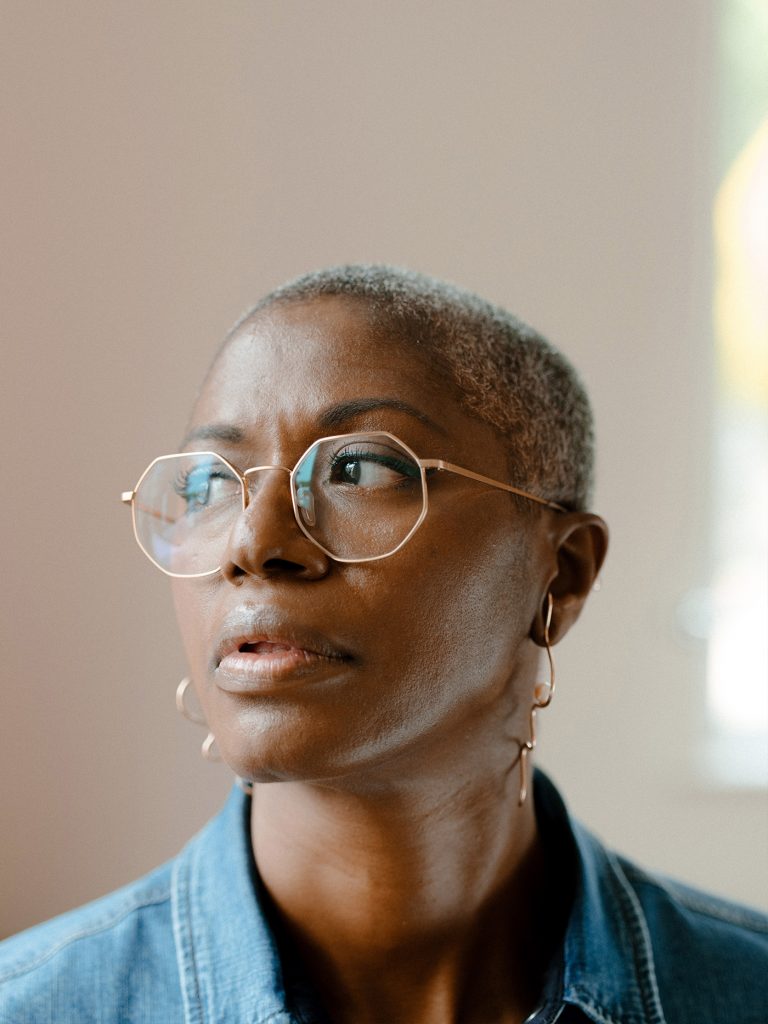
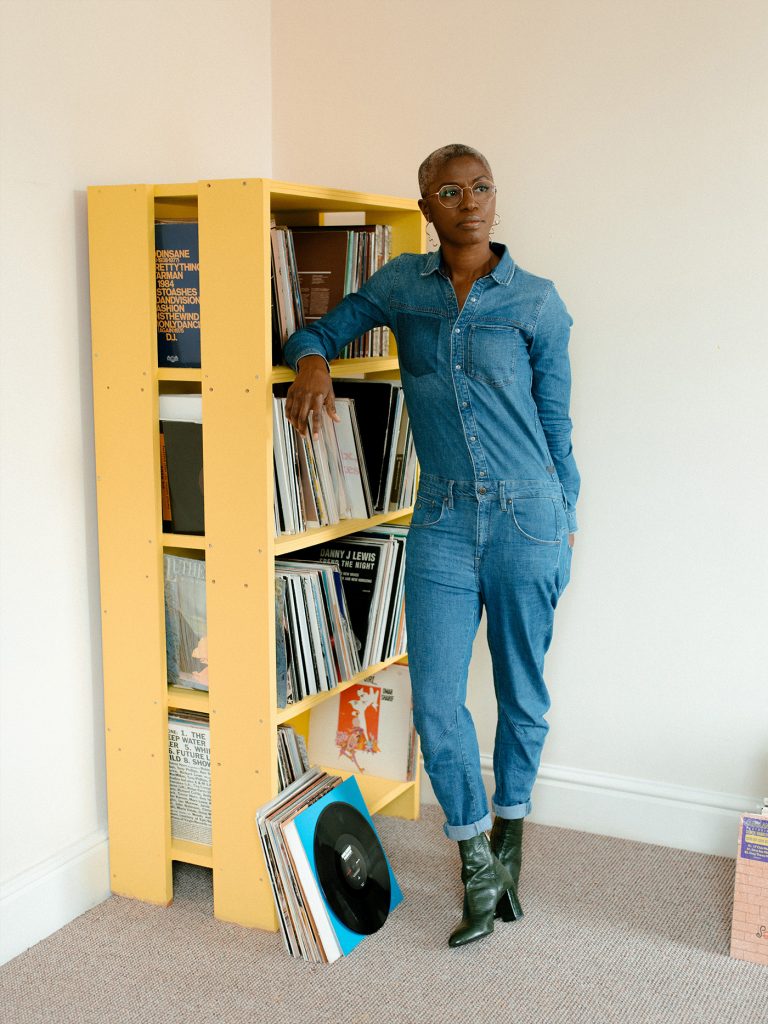
But it wasn’t easy to settle back down. To put it into context, Paulette was fresh from playing a jaw-dropping list of Ibiza’s best: from Eden to Pacha, Privilege and Space. And yet, astonishingly, she still struggled to get work back in the UK.
“When I left Ibiza, people told me it would be a disaster, I should never go back. I didn’t look at it that way; I was going forward. I was planning for the future.”
Once back in the rhythm of looking for work, she found that The Haçienda, her old stomping ground, had been turned into luxury flats. There was a new revolution underway. Manchester clubbing scene wasn’t just about The Warehouse Project or Sankeys; Paulette discovered the Northern Quarter, Spinningfields and Deansgate, and underground clubs like Gorilla, Hidden, Antwerp Mansion, Underdog, The Carlton Club and The White Hotel. They were all, not-so-secretly, kicking ass and taking names. Whilst in some ways, having no contacts in those places was “a massive stress” (especially whilst caring for her mum full-time), it also became a very good opportunity to start meeting new people.
“I was in a bit of a state actually. Thinking all my experience was irrelevant, and I’d spent years in Ibiza hearing that. It takes a long time for people to earn the good stuff; Clara Da Costa had been there 20 years before she got a residency with Carl Cox at Space. It shouldn’t take 20 years. I wanted to work. I knew how slowly it worked in Ibiza, and thought I needed to flip this when I came back to Manchester.”
Paulette dived in, co-curating a photography exhibition at Old Granada Studios called The Other Side of Midnight with Gary McLarnan from event agency Sparklestreet. Randomly, she was recognised in the foyer of Tariff & Dale by owner Nick de Souza, who’d danced at Flesh; she ended up playing a seven-hour slot at their first birthday party which “went down really well”.
“I’m very grateful to Nick for putting me on, because if he hadn’t had done that I wouldn’t have met so many important people or have the work that I’ve got now.”
There’s no doubt that Paulette’s sunny disposition hides some tough experiences. She was the only PoC to graduate from her English Literature degree at Manchester Metropolitan University. She has frequently encountered industry sexism and racism, spending “a lot of time being the only black person in the room.” She left her PR job at Mercury Records because of racist bullying that stunted her career progression. She’s been frequently underestimated and patronised by fellow DJs; she’s spoken out about being deleted from The Haçienda’s history in key texts (notably Peter Hook’s The Haçienda: How Not to Run a Club); and, even recently, a male DJ ignored her concerns that he was maxing the system before she took to the stage. It took the male venue-owner, repeating what Paulette had just said, for him to listen.
“Unfortunately, as far as we’ve come, I occasionally meet that ‘what the fuck do you know?’ attitude.
“I can tell you that female DJs still get less money than male DJs. Everywhere I’ve worked, I’ve earned less than men with less experience doing the same job as me.”

Paulette in Frances Poppy sunglasses
When I ask about her years at The Haçienda, I’m surprised to hear that she has dissociative amnesia from around that time. It’s something she’s never really talked about before in interviews and means that she’s “buried a lot of memory”.
“When I left Manchester in 1994,” she recalls, “I left for two reasons: one positive and one negative. On the up side, I’d been taken on by Concorde Artists Management and offered weekly residencies at The Zap Club in Brighton and regular guest slots at Heaven in London. On the down side, I was going through a really bad divorce. My marriage started to go wrong when I was at uni, and then got worse once I started to get work modelling, dancing and DJing … I saw the dark side in life and in psychological terms.”
“It became apparent that I should follow the positive in my professional life, rather than the negative in my personal life.”
Through it all, music has been the constant.
“I love all music, and that underpins everything I do. I believe in the creative powers of it in healing and developing culture and people. It’s a health and life-giving force in many ways. Music is the universal language.”
What Paulette does recall about The Haçienda is how fundamental it was. She was a punter there before becoming a DJ, dancing to performances by Mantronix, Jamiroquai, Mike Pickering and Dave Haslam. Flesh was only once a month, so clubbers would plan outrageous outfits in advance. She digs around in the wardrobe and waves those aforementioned sequinned knickers at me, hand-stitched with a red heart.
Paulette describes Flesh as a “big gay party” with lots of young creatives in attendance who have since gone on to do bigger things including Princess Julia (who now works as a Consultant for i-D), Stuart Halton (right hand man at Vivienne Westwood), the fashion stylist William Baker (Kylie, X Factor), transgender activist Kate O’Donnell, NOBU head honcho Paul Moratia, and photographer Lee Baxter, all of whom regularly danced on her floor. It was, she says, a diverse and accepting crowd with no VIP table culture.
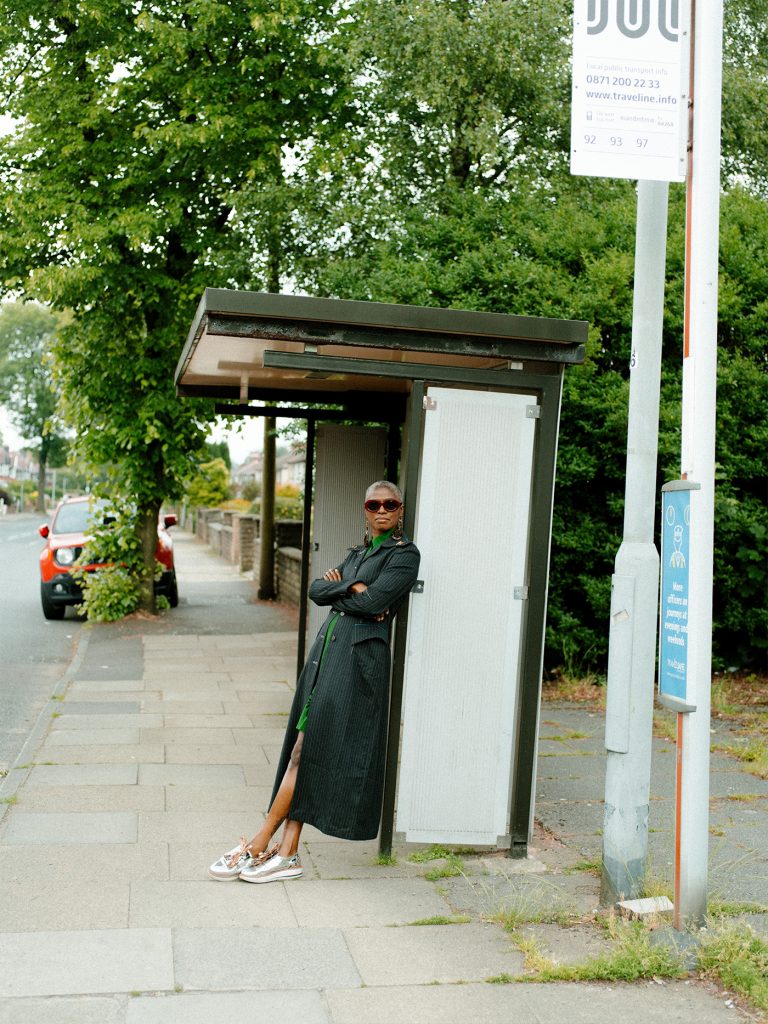
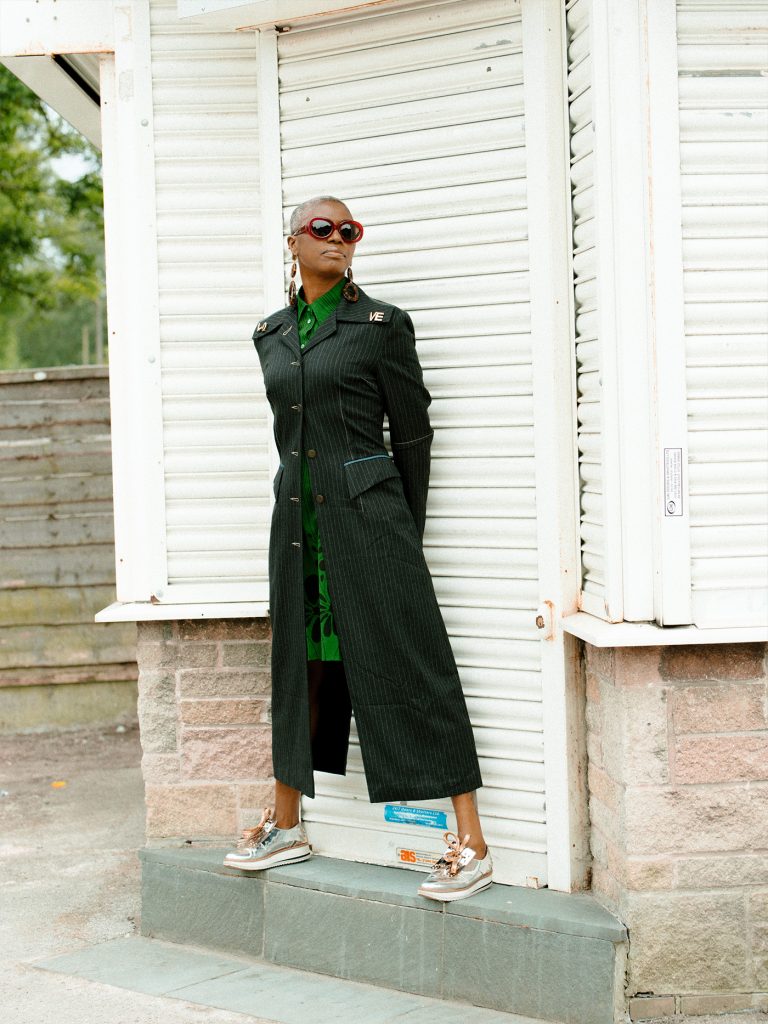
We talk about how easy it is to make friends here, because of the “familiarity and openness” of the people. We both chat to people at bus stops, it transpires. In another breath, we’re discussing Paulette’s love of teaching. One of the reasons that she’s grateful to Reform is due to the fact that they encouraged her to run workshops for them; still on djing and broadcasting, but with a wider remit of life skills and mental health. She’s keen to do more in the city, with an upcoming exhibition at The Lowry entitled Edit.03: Homebird addressing issues of race, sexuality, gender, art and music.
“I’m going to do some work with BIMM [British and Irish Modern Music Institute] in October and with [the National Citizen Service’s] ‘The Challenge’ this summer, mentoring young people throughout the summer holidays as a public speaking coach and workshop facilitator. The class size is 84! I’m a bit nervous…”
There’s no need for that, as it’s clear that she’s caring, spirited and a natural spokesperson for her industry. In another revelation, just when you think she can’t possibly do any more, I find out that Paulette writes haikus and poems. The most recent, entitled I Am The One, is on her blog, accompanied by a Youtube version of Jackie Moore’s 1973 track, If, which echoes a sentiment of change and overcoming the odds:
‘I am the one
Who works
Who plays
Who stays
Who strays
Who cries
Who tries
Who doesn’t give a …
Who doesn’t give up’
I can imagine Paulette working alongside teenagers just as she does with those green shoots in her garden: nurturing, practical, taking the rough with the smooth. Ready to graft. She’s an inspiration for anyone looking to make something good in the world.
“I’m from Manchester, that’s who I am, and it’s every bit how I am creatively and as a person,” she says. “I’m a Northerner. I’m a working class girl made good. I’m a Manc. I’ve made it because of who I am, not in spite of who I am. When I think of home, it’s here.”.
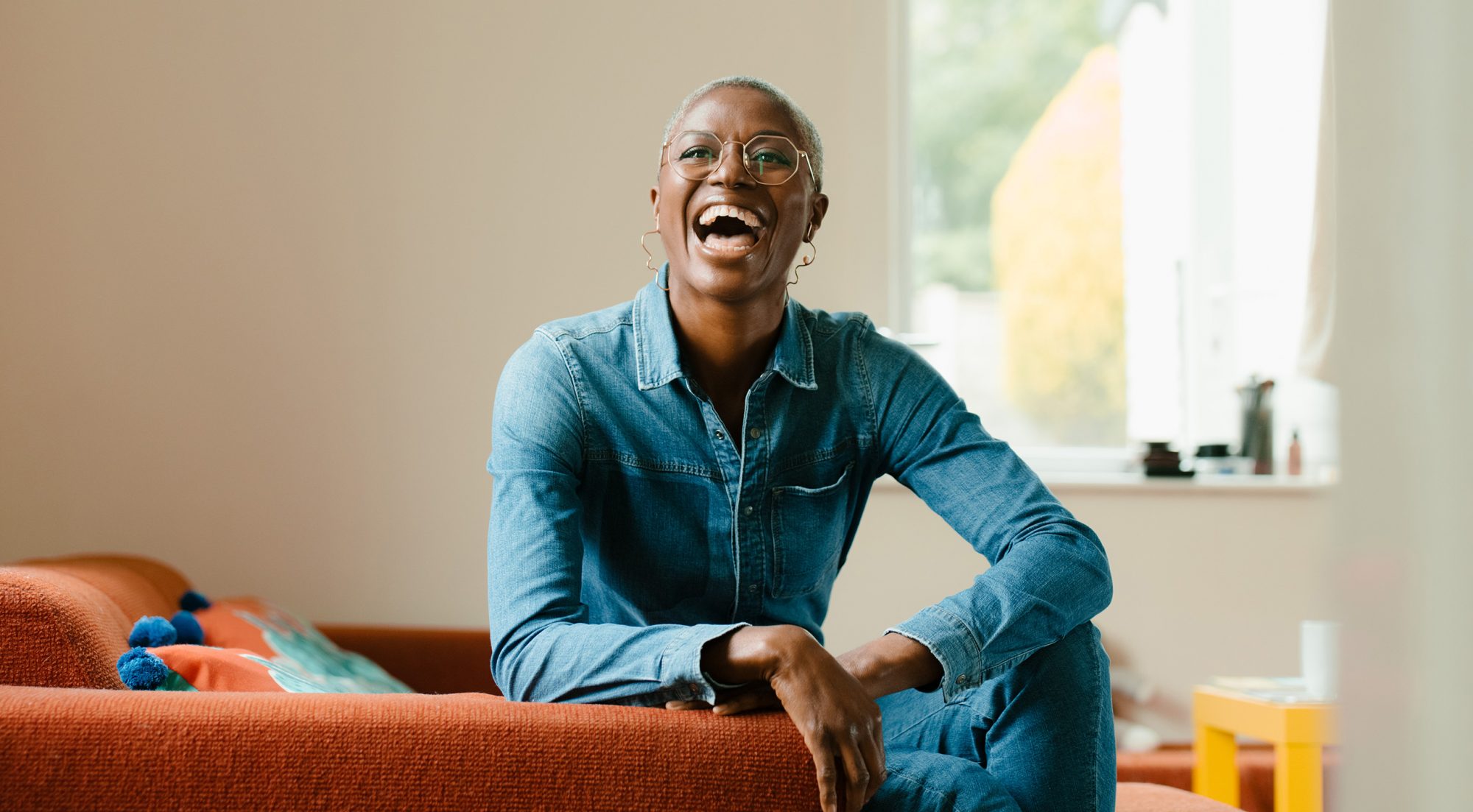
‘A New Revolution’ is produced in collaboration with Ace & Tate and we’re proud to be asked to document the creative community in the city we’ve been based in since starting intern in 2013. Over the next month, we’ll be profiling the individuals who embody Manchester’s unparalleled spirit, understanding what it is that drives and inspires them. The series marks Ace & Tate’s arrival in the city and we’re creating a limited edition publication available exclusively at the launch event on August 2nd, so be sure to join us and give them a hearty Mancunian welcome. This piece was written by Laura Robertson and photographed by Lauren Maccabee who was assisted by Matt Leeves. Paulette was styled by Georgia Boal-Russell, with hair and makeup by Sophie King. Be sure to follow Paulette on Twitter to catch her live and direct. We’ll bee again back next week with another instalment.

